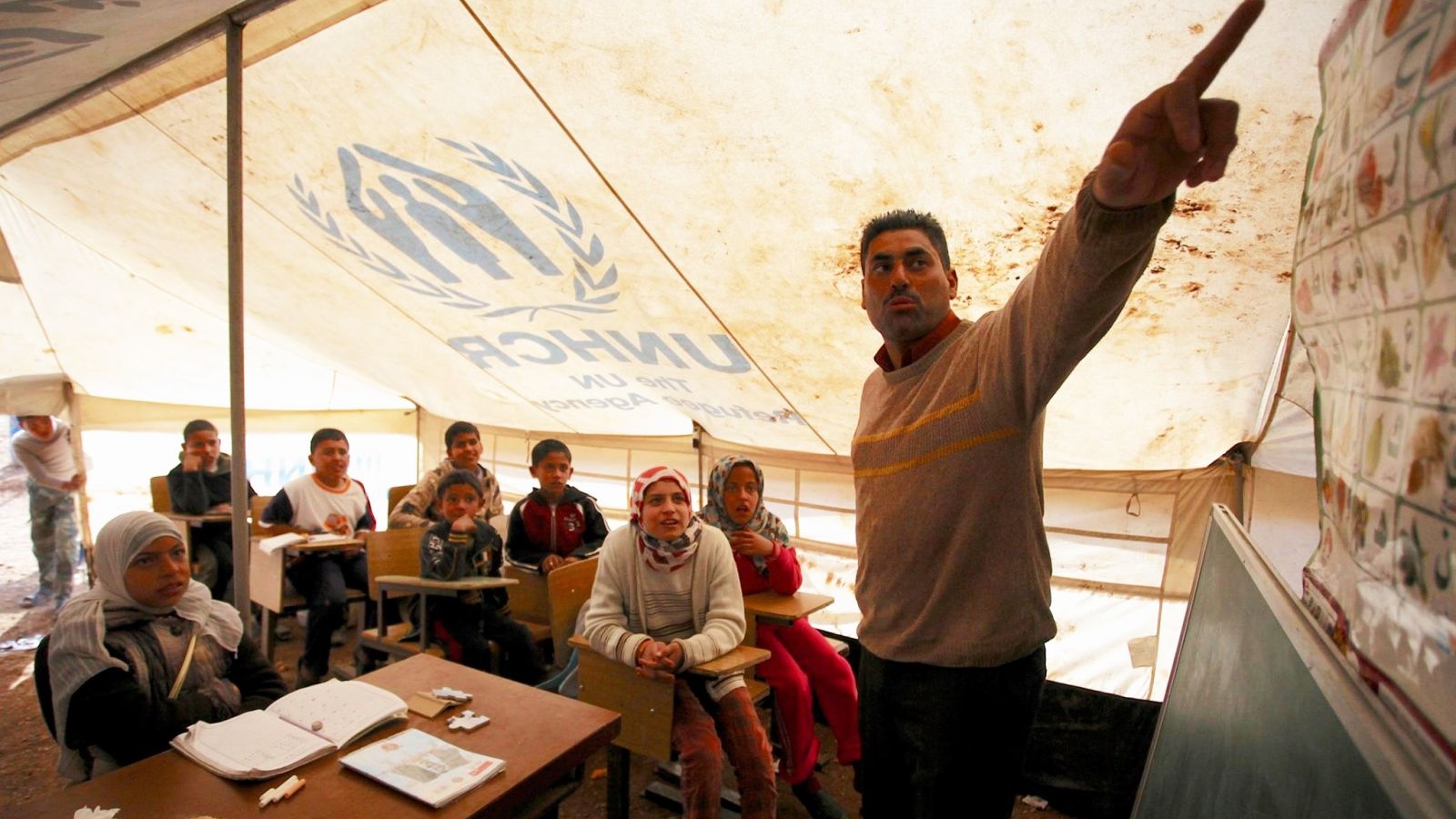By Honey Al Sayed
For the past five years, more than 12 million Syrians have been displaced. Resiliently and arduously surviving, Syrians have witnessed a revolution, armed conflicts, the use of chemical weapons, and the domination of Islamist radicals over diplomatic and political narratives on Syria. They have witnessed the unjust deaths of over 250,000 Syrians along with the forced migration of millions of their neighbors who joined them in sharing the guilt of survival. In doing so, these brave individuals have embarked on an onerous yet unique journey for their fellow citizens who remain behind: a journey to tell the world the story of their country in their own voices. For many, this is also a struggle to put a human face on a part of the world that has been so often described as “the cradle of civilization,” but is now better known for years of violence that have beset the nation.
In October 2012, a year after the outbreak of the Syrian uprising, the journey began within a group of displaced Syrian women and men at home and abroad. We came together to create a broader platform for rebuilding communities and peace and documenting stories of Syria’s revolution and war. After long brainstorming sessions on Skype, we created an independent, non-profit multi-media platform named SouriaLi. This Arabic word with a double meaning can be translated into both “Syria is mine” and “Surreal.”The first meaning, “Syria is mine,”arouses a sense of active citizenship, while the second one “Surreal”mirrors how Syrians and the international community perceive the developing war in Syria.
Aiming to bring the voices of local Syrians to the frontline of international discourse on the Syrian crisis, this web-based media outlet focuses on issues marginalized by the conflict. The stories it covers shed light on the rule of law, transitional justice, freedom of speech, human dignity, empowerment of minorities, and so on. Despite the current humanitarian crisis and political deadlock, SouriaLi believes that, by exposing themselves to these issues, people can prepare themselves to take a proactive step in rebuilding their country’s future.
During the past three years, SouriaLi reached further into various corners of the region. As the number of Syrians who shared their ideas through SouriaLi grew, the platform developed into an effective channel of communication for people of the entire region that experienced years of economic and political turbulence, from the Arab Spring to the ongoing the Syrian civil war. As an all-inclusive platform for dialogue, SouriaLi not only engages Syrians from all religious, political, and ideological backgrounds but also gives Syrian and non-Syrian listeners the opportunity to express their opinions freely with no ‘red lines’ imposed.
Knowing that media can promote constructive social and political dialogues, preserve local cultures, and contribute to peacebuilding in times of conflict, SouriaLi fully utilized the power of media as a channel for bringing positive changes in society. So far, SouriaLi has created more than 50 radio programs and hundreds of digital art posters calling for peace and humanitarian campaigns. It has also actively employed social media, broadcasting and promoting its message via hundreds of YouTube videos and thousands of social media texts and visuals on a number of platforms, such as Facebook, Twitter, Instagram, and Pinterest. As of August 2015, SouriaLi has more than 250,000 followers on Facebook, and its official website boasts over 16,000 monthly visits.
During my 15-year career in the fields of communications, media, and the arts, as well as through personal experiences, I found that creative and strategic use of media and the arts provides a powerful tool that can mobilize thousands and millions of people. Such mediums of communication, be it traditional or not, can serve multiple roles: promoting multidisciplinary dialogue and documenting ongoing events; providing an outlet for grassroots movements, or “people power;” and empowering voices for new changes in society. Engaging in social discourses through these mediums — what I usually term as ‘positive media’— help those who suffer from conflict face their realities and step up for a more desirable future they dream.
Throughout history, when conflicts arose, media and arts flourished with them, sometimes as transformers of social behaviors and the reality, other times as fuels that drive wars. During the past five years alone, thousands of media and cultural outlets have emerged in Syria. Policymakers and external actors, including truth and reconciliation committees, transitional justice committees, peacebuilding practitioners, and governmental and nongovernmental organizations, must acknowledge the importance of positive media as a powerful peacebuilding tool and support its growth accordingly. In addition, international media should play a pivotal role in amplifying the voices of Syria’s grassroots.
SouriaLi today, with what minimal resources it has, continues to work with dispersed staffs and challenging FM broadcast facilities, while evading and resisting the government’s censorship. Still, it persistently strives to find ways to carry out its mission and realize its vision, persevering to unite communities in a nation so marred by conflict.
This is not to say that SouriaLi will save Syria or that media and the arts are the only solutions to all problems in the world; crises are best resolved when solutions are multilayered. Positive media is one but a key part of many solutions to the Syrian crisis.
Finally, nothing is impossible where “people power”is at play. Further, nothing is impossible when we as people of this world collectively persevere to find sustainable solutions for peace and justice. And so the challenging but worthwhile journey continues.
*****
*****
Honey Al Sayed is a communications and marketing professional and journalist. After the outbreak of the Syrian uprising, she relocated to the United States and co-founded SouriaLi, where she currently works as a producer, host, and media consultant.
[Photo courtesy of SouriaLi]
